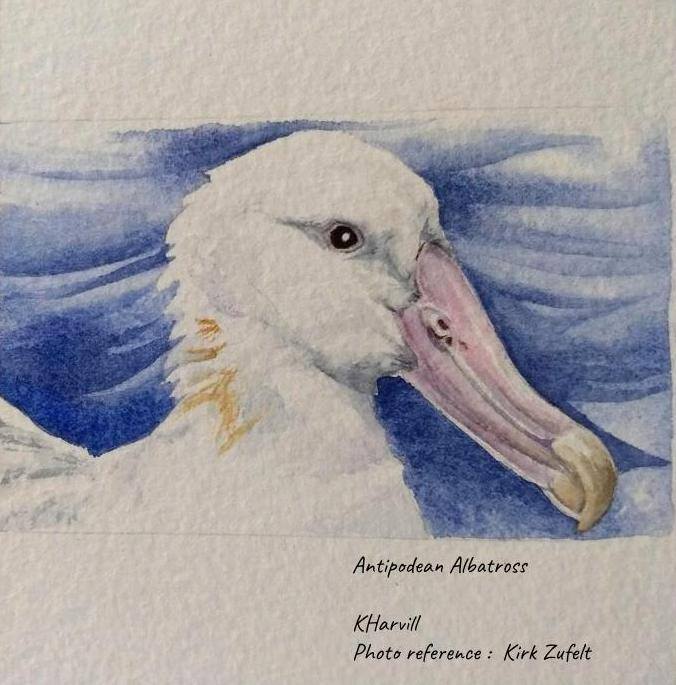
Antipodean Albatross: a New Zealand endemic at risk from fisheries bycatch; artwork by Kitty Harvill after a photograph by Kirk Zufelt
New regulations and funding in New Zealand will see surveillance cameras fitted to 300 inshore fishing vessels. The measure aims to both record bycatch of seabirds and marine mammals and reduce the at-sea discarding of non-target fish. Use of cameras was trialled on 20 vessels in 2019 and will now be rolled out for 85% (by volume of catch) of the fishing fleet. The Minister for Oceans and Fisheries David Parker announced last month that “funding is now in place for the wider roll out of on-board cameras, delivering on a promise made at the 2020 election. The cost of the roll-out is expected to be [NZ]$68 million over the next four years. On-board cameras will provide independent, accurate information about commercial fishing activity. That will provide greater certainty and more evidence on which to base decisions about policy and regulation, scientific research, and fisheries management. The roll-out will be staged to prioritise those vessels that pose the greatest risk to protected species such as Hector’s and Māui dolphins, black petrels and Antipodean albatross. When complete, cameras will record activity on vessels responsible for about 85 per cent of the inshore catch by volume”.
The move has been welcomed by Birds New Zealand. The society said it supported the moves to put surveillance cameras on up to 300 inshore fishing boats as a way to provide more accurate bycatch data and help ensure compliance with the new rules. A fisheries spokesperson commented that “the cameras will help ensure commercial fishing boats bring back to port all of the fish they catch, instead of throwing undersized fish overboard.”
John Cooper, ACAP Information Officer, 01 July 2021

 English
English  Français
Français  Español
Español